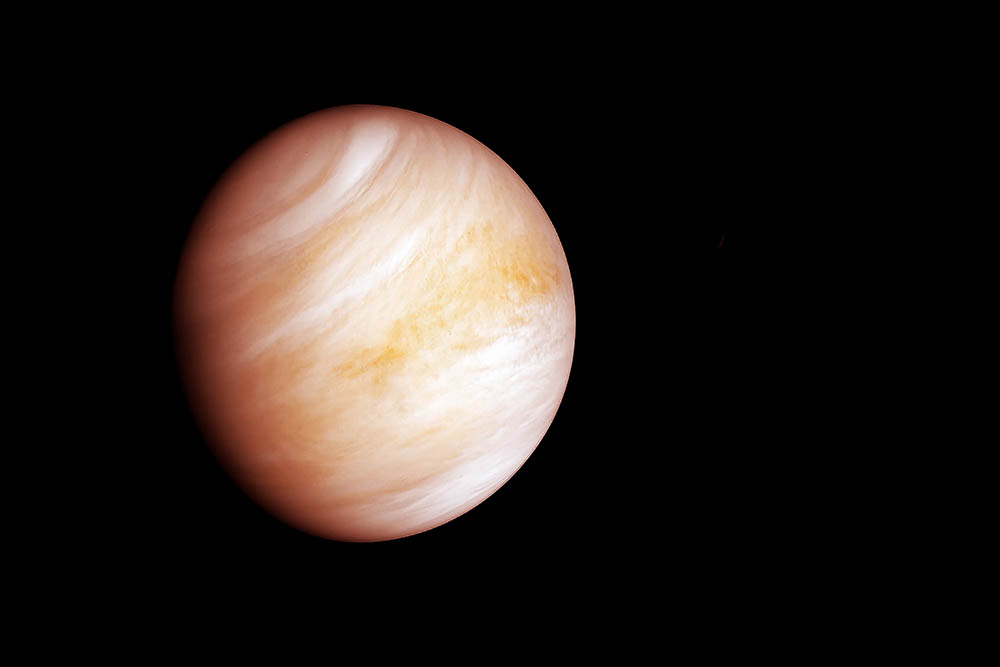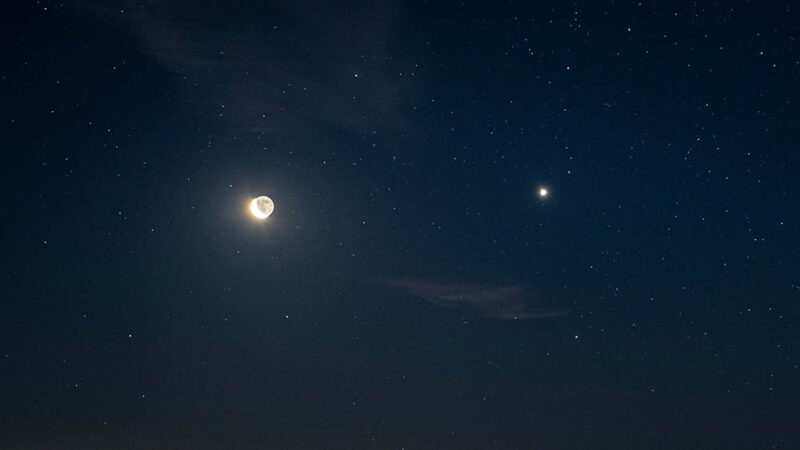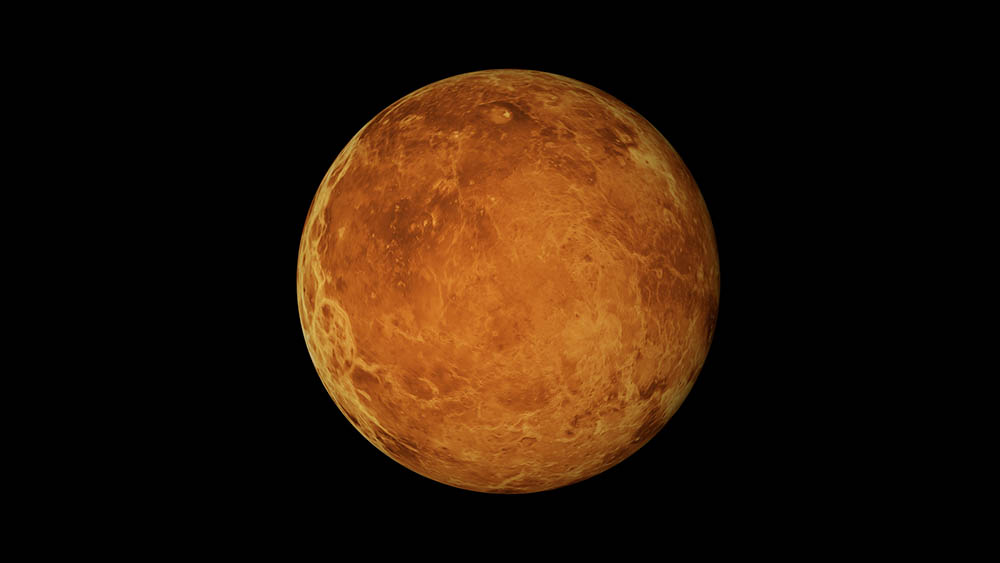Why Is Venus So Bright? The Interesting Answer!
Last Updated on

There are several reasons why Venus is so bright in our night sky. For one, it is the second-closest planet to Earth, meaning it’s one of the closest objects in our sky (after the Moon and Mercury). Additionally, Venus has an extremely reflective surface, which allows it to reflect a lot of light back toward Earth.
Finally, because Venus is closer to the Sun than Earth is, it often appears in our sky near sunset or sunrise, when the Sun’s light is particularly strong. All these factors combine to make Venus one of the brightest objects in our night sky.
But they aren’t the only reasons why Venus is so bright. In this article, we explore all the reasons in more detail to explain just how Venus got to be the “evening star.”

Top 3 Reasons Venus Is So Bright:
1. Thick Clouds Cover Venus
One of the primary reasons why Venus is so bright is that it is completely covered in clouds. These clouds are made up of sulfuric acid, and they reflect a significant amount of light back into space. In fact, the clouds reflect about 70% of the sunlight that hits them.
The clouds also help to trap heat in the atmosphere, making Venus one of the hottest planets in the solar system. The average temperature on Venus’ surface is about 460 degrees Celsius (850 degrees Fahrenheit).
The clouds also play a role in why Venus is so bright in our night sky. When the Sun sets here on Earth, its light still shines on Venus. Again, this is because Venus is closer to the Sun than we are. As a result, you can often spot Venus as the Sun rises or sets.

2. Venus’ Albedo
One of the reasons Venus is so bright is because of its high albedo. Albedo is a measure of how much light is reflected by an object. Venus has an albedo of about 0.7, which means that it reflects about 70% of the light that hits it. This is much higher than the Earth’s albedo of about 0.3.
3. Venus’ Size and Distance From Earth
Venus is the second-closest planet to the Sun, orbiting at an average distance of 108.2 million kilometers (67 million miles). Mercury is closer to the Sun, but it’s much smaller than Venus. In fact, Venus is almost the same size as Earth, with a diameter of 12,104 kilometers (7,520 miles).
Given its size and close proximity to the Sun, it’s not surprising that Venus is the brightest object in our night sky after the Moon and Sun.

What Planet Is Brightest from Earth?
Venus is the second-brightest natural object in Earth’s night sky (after the Moon), as measured by its intrinsic luminosity. Its maximum brightness, attained around the time of greatest elongation, equals -4.6 on the magnitude scale (using a zero point of -27 for the full Moon), which is bright enough to cast shadows.
The planet’s maximum apparent magnitude of -4.5 is bright enough to be seen by the naked eye on a clear night. Venus often appears brighter than any other object in the sky except the Sun and Moon, but sometimes Mercury or even Mars can outshine it.
Is Venus Visible to the Human Eye?
Yes, Venus is visible to the human eye. It is often said that Venus is the “morning star” or the “evening star.” This is because it is usually the first to appear in the sky in the morning and the last to disappear at night.
Venus is so bright because it is very close to the Sun. It orbits the Sun much closer than Earth does. As a result, Venus is often referred to as a “sister planet” to Earth.
Despite being closer to the Sun, Venus is not the hottest planet in our solar system. That title goes to Mercury. However, Venus has a very thick atmosphere that traps heat very effectively. This makes Venus the second-hottest planet in our solar system after Mercury.

Conclusion
Venus holds numerous wonders and is a planet that we continue to learn more about as our technology improves. It is one of the most interesting planets in our solar system, and its unique characteristics make it a fascinating place to study.
Its brightness is just one of the reasons why Venus is so special. So be sure to explore all that this amazing planet has to offer.
Featured Image Credit: Artsiom P, Shutterstock
About the Author Robert Sparks
Robert’s obsession with all things optical started early in life, when his optician father would bring home prototypes for Robert to play with. Nowadays, Robert is dedicated to helping others find the right optics for their needs. His hobbies include astronomy, astrophysics, and model building. Originally from Newark, NJ, he resides in Santa Fe, New Mexico, where the nighttime skies are filled with glittering stars.
Related Articles:
What Is the Best Binocular Magnification for Hunting? Optical Features Explained
15 Crucial Facts About Ultraviolet Rays & the Sun
What Constellation Is Spica In? The Interesting Answer!
10 Interesting Leo Constellation Facts, Myths, and FAQs
15 Interesting Pegasus Constellation Facts, Myths, and FAQs
6 Interesting Sagittarius Constellation Facts, Myths, and FAQs in 2024!
What Are Constellations? Where Did They Come From?
8 Interesting Libra Constellation Facts, Myths, and FAQs
